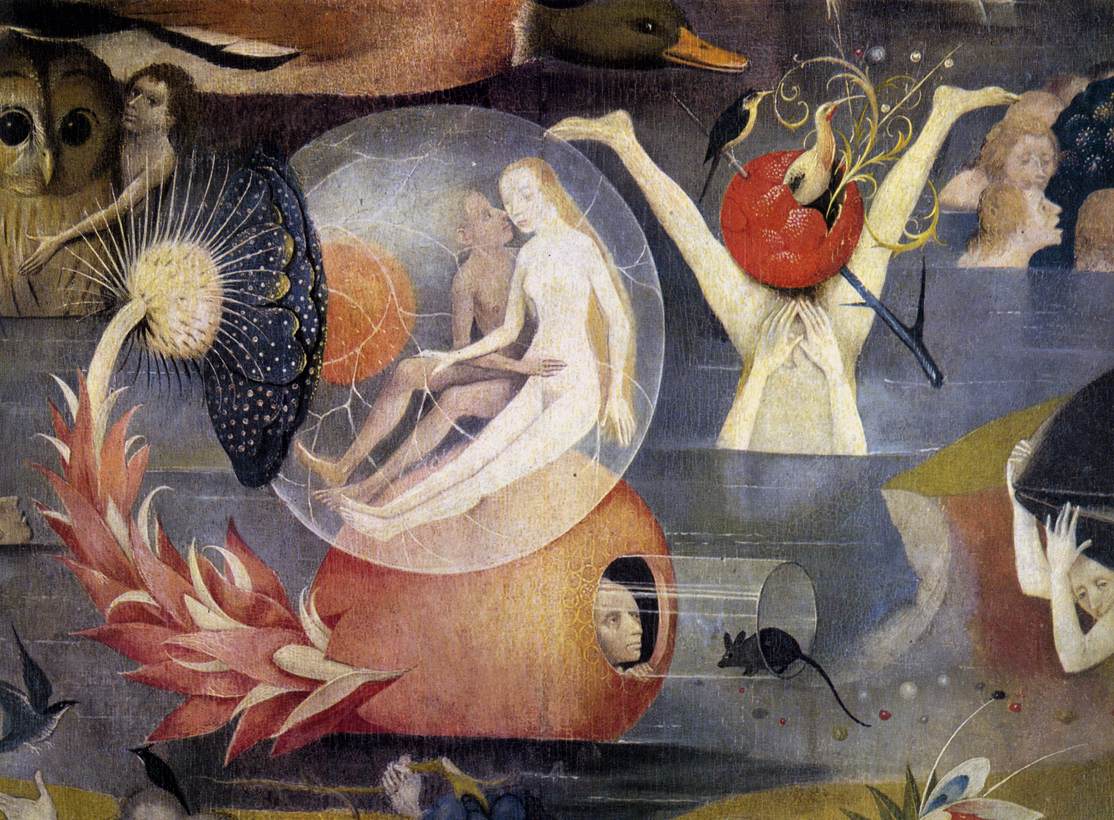Exoteric
And Esoteric
“The eye through which I see God is the same eye through which God sees me; my eye and God's eye are one eye, one seeing, one knowing, one love.” Meister Eckhart
Let's
explore the difference between surface and depth, this is in order to
describe the difference between mere survival vs. living fully, being
really happy, and making a genuine contribution. The exoteric aspect
of reality is just the surface, tip of the ice burg, cover of the
book, symptoms, and first impressions or instinct. This is where our
ego is useful, and gets us in the door with a person, place or thing.
After we're in, we want to be able to navigate, read the book, get our bearings, and
optimize our experience, this is where the esoteric comes in.
If
we look at traditions such as initiations, rites of passage, magic,
witchcraft, shamanism, mysticism, mystery cults, etc., we will see
the philosophy, psychology, and practical application of
transformation, that is to say, having an intentional effect on
people, places, and things that is aligned with values and
perspective. Psychotherapy is a modern practice that is about healing
and wholeness, and includes the esoteric if it is to be effective,
otherwise you will just get a kind of short term relief of symptoms,
which is how we are conditioned to live in our culture. Our culture
is one of immediate, short term, instant gratification, but this is
never fulfilling for long, and people will seek out, often
unconsciously, more depth, meaning, and experience in a variety of
ways, many of them self-destructive. Addictions of all kinds fall into
this category.
The
philosophy of transformational practice is the theory, ethics, and
conceptual framework or ideas behind the particular transformation.
You can get a general idea
of many practices such as Wicca, Buddhism, Christianity, Cabala, Tantrism,
Dreaming, Meditation, Psychotherapy, etc. as practices to achieve
Self-Realization or Self-Actualization. That is,
coming to understand our own inherent Divinity through the nature of
the mind. This doesn't
really get us very far, but it is important to have some kind of
philosophical underpinnings, or model/blueprint, to frame a practice and approach, much
like laying the foundation of a building. Remember, the map is not the territory!
The
psychology of a practice takes us deeper into the symbolic and
relational aspects of a transformational practice. If we look at
nature mysticism, we could take dreams, mandalas,
or objects from nature, and explore our insights, connections and
personal meaning in relation to these symbols. Psychology also deals
with perception, cognition, attention, emotion, intelligence,
phenomenology, motivation, brain functioning, personality, behavior,
and interpersonal relationships, including psychological resilience,
family resilience etc. Good psychology considers the unconscious, both
individual and collective, this helps establish causal and
correctional relationships between psychosocial variables.
Finally,
the esoteric, must deal with practical application, discipline,
skillful means, and getting results, otherwise it remains abstract
and purely conceptual, which is where a lot of people in the West
like to hang out. There's an old joke about Episcopalian's that says
"if given the choice between going to Heaven and going to a lecture
about Heaven, an Episcopalian will take the lecture."
A
practice is just that, something you practice, get instruction,
acquire skills, follow injunctions, e.g. “if
you want to quite the mind, meditate.”
The practical aspects must have a feedback mechanism whereby you are
getting objective information about what's working/not working and
adjust your practice accordingly. This is also how science of any kind works, which is an empirical methodology that involves; asking a question, forming a hypothesis, making predictions, doing experiments, analysis of results, and communicating results. Whatever your practice, it is a slow and steady process, anyone or anything that tells you you can "get it quick" is lying, however, you can accelerate your journey, but be cautious about pacing, the point is to enjoy the journey!
So
whatever your practice or interest in the esoteric, deeper aspects of
life, make sure you are including a philosophical, theoretical model
complete with ethical values, a depth psychological understanding
that includes the symbolic and relational aspects, and a practical
aspect geared toward getting results, gaining fulfillment, and
contributing to the greater whole, this is an integral approach to
happiness and peace.
“Theologians may quarrel, but the mystics of the world speak the same language.”
Meister Eckhart












